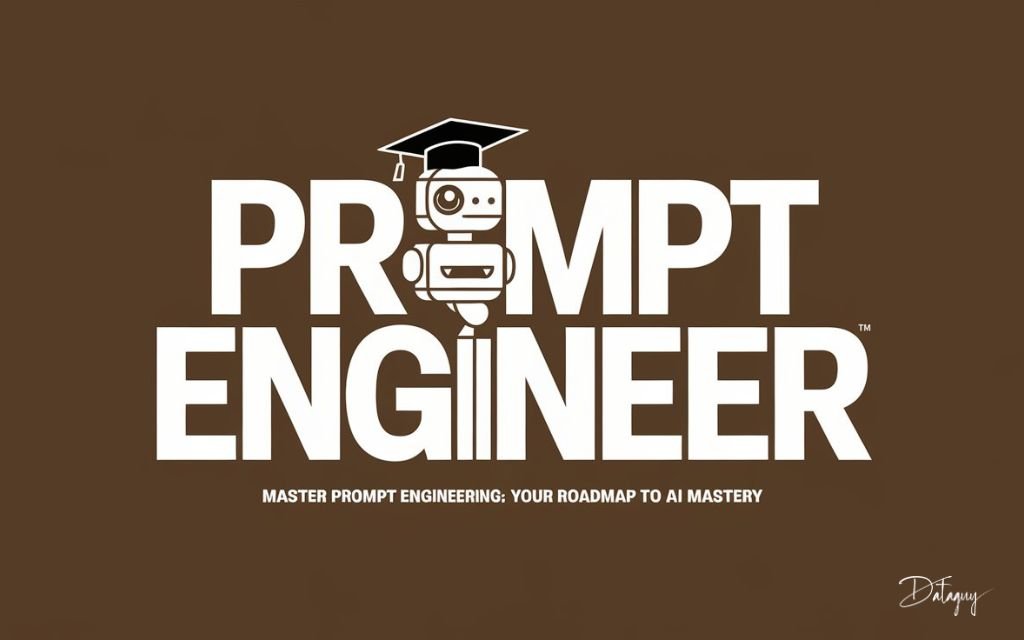Insights Index
ToggleThe Role of a Prompt Engineer: A Guide to the Emerging AI Profession
Artificial Intelligence (AI) is rapidly evolving, and with it, a host of new roles are emerging. One such role that’s gaining traction is the Prompt Engineer. If you’re familiar with AI models like GPT or other natural language processing tools, you might have heard of prompt engineering. But what exactly does a Prompt Engineer do, and why is this role becoming essential in the tech landscape?
What is Prompt Engineering?
Prompt engineering is the practice of crafting inputs, or “prompts,” that guide AI models to generate more accurate and relevant responses. Think of it as creating the instructions for an AI system to follow, ensuring the model provides useful results. With AI models now used for content creation, customer service, research, and even coding, the demand for precise instructions, or prompts, has never been higher.
A Prompt Engineer is essentially someone who designs these instructions, often iterating and experimenting with various prompts to optimize AI behavior. The goal is to help the AI model understand human intent better, leading to improved outcomes.
Why is Prompt Engineering Important?
As AI continues to integrate into daily business operations and consumer tools, the accuracy of AI responses becomes crucial. Whether it’s generating content, automating workflows, or analyzing data, a poorly designed prompt can lead to irrelevant or inaccurate outputs, reducing the effectiveness of AI systems.
Key reasons why prompt engineering is vital:
- Maximizing AI Performance: The better the prompt, the more accurate the AI’s response.
- Improving User Experience: By providing clear instructions, prompt engineers ensure AI-powered tools are more intuitive and useful for users.
- Adapting to Specific Use Cases: Prompts can be tailored for different industries, whether it’s healthcare, finance, education, or customer support.
Key Skills for a Prompt Engineer
- Understanding of AI and NLP Models: To craft effective prompts, one must have a solid grasp of how natural language processing (NLP) models work. This includes knowing how language models interpret and respond to input.
- Creativity: Prompt engineering often requires thinking outside the box. Engineers must experiment with different phrases, structures, and approaches to discover which ones yield the best results.
- Attention to Detail: Small tweaks to a prompt can lead to vastly different outputs. An eye for detail is crucial in refining prompts to improve AI responses.
- Domain Knowledge: Understanding the context or industry you’re working in is essential. For example, a prompt for a healthcare AI tool will differ significantly from one designed for an e-commerce chatbot.
- Problem-Solving: Like any engineering role, prompt engineering involves a lot of testing, analyzing, and problem-solving. It’s a process of trial and error to find the most effective prompts.
How to Become a Prompt Engineer
Interested in this career path? Here’s a basic roadmap to becoming a prompt engineer:
- Learn the Basics of AI and NLP: Start by gaining a strong foundation in artificial intelligence, focusing on natural language processing. There are plenty of online courses and resources available that introduce these concepts.
- Get Hands-On with AI Tools: Familiarize yourself with AI platforms like GPT (from OpenAI) or other language models. Many of these tools offer user-friendly interfaces where you can start experimenting with prompts right away.
- Practice Writing Prompts: This is where creativity and experimentation come into play. Write different types of prompts and observe how the AI responds. Learn to adjust prompts based on the quality of the output.
- Stay Updated with AI Developments: AI is a rapidly evolving field. Stay updated with the latest research, trends, and tools in NLP and machine learning. Join online communities, attend webinars, and keep an eye on industry news.
The Future of Prompt Engineering
As the capabilities of AI models grow, the role of prompt engineers will likely expand as well. Companies will continue to look for specialists who can fine-tune AI systems, making sure they deliver top-notch performance. In the future, prompt engineering could evolve into a broader discipline that encompasses even more aspects of human-AI interaction.
Conclusion
The Prompt Engineer is fast becoming one of the most crucial roles in AI development. With the rise of AI tools across industries, the ability to guide these models with precision and creativity is a highly valuable skill. Whether you’re looking to enter the field or want to understand how AI systems can be optimized, prompt engineering is a role worth keeping an eye on.
In an AI-driven world, those who master prompt engineering will be at the forefront of innovation, helping shape the future of human-machine interaction. By focusing on AI’s human interaction aspect, the Prompt Engineer paves the way for AI systems to truly understand and meet our needs.

